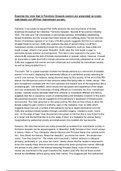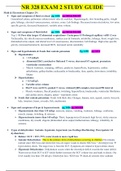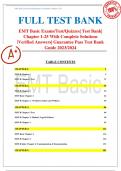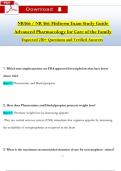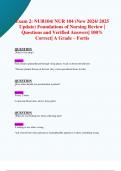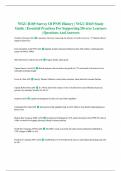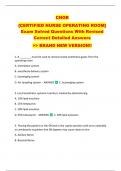Exam (elaborations)
Essay Question - "Examine the view that in Feminine Gospels women are presented as lonely individuals cut off from mainstream society.
- Course
- Institution
- Book
This is a practise exam question on Feminine Gospels by Carol Ann Duffy. It focuses on few poems in the collection that deal with the theme of women being presented as lonely and isolated.
[Show more]
